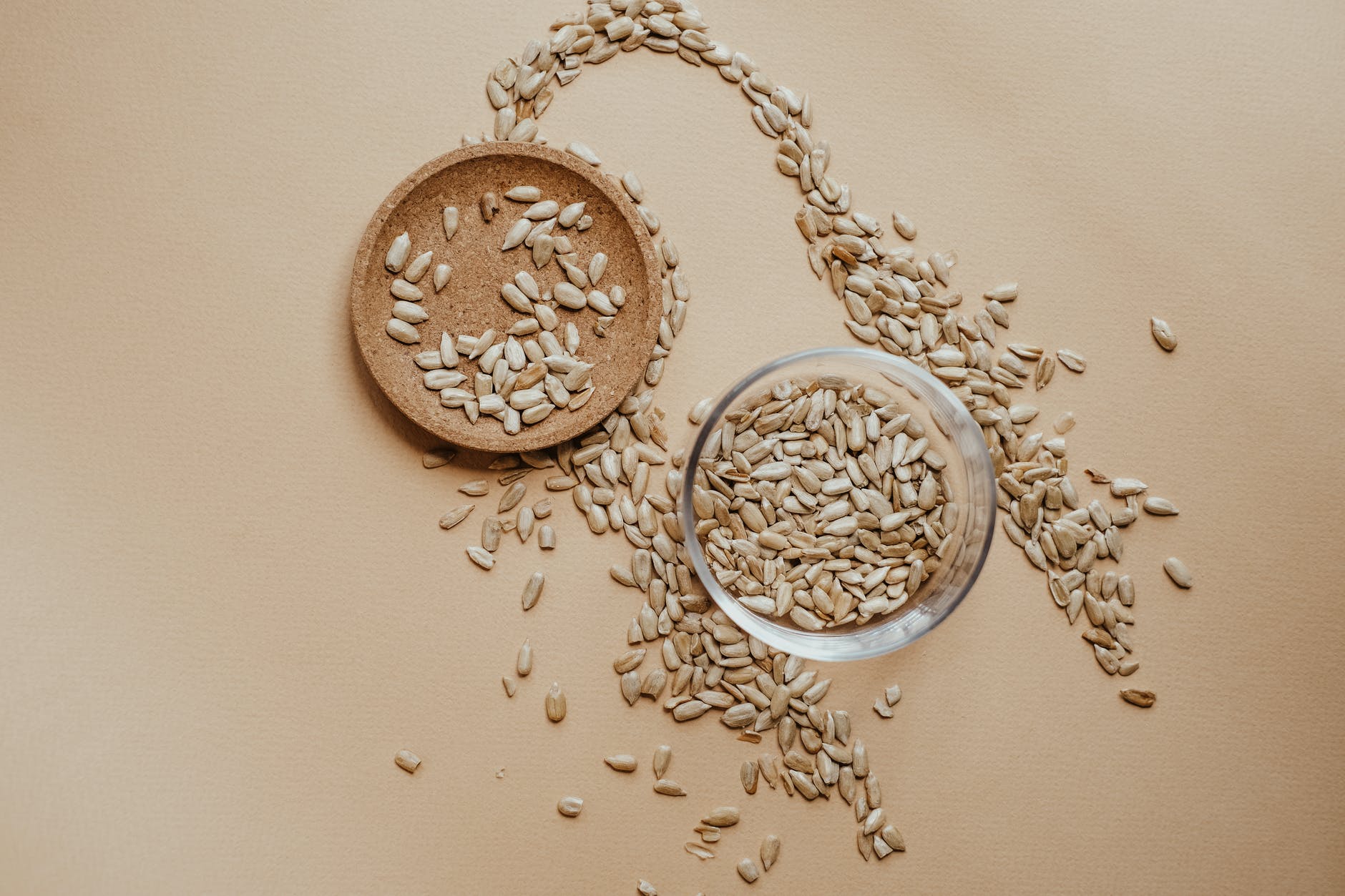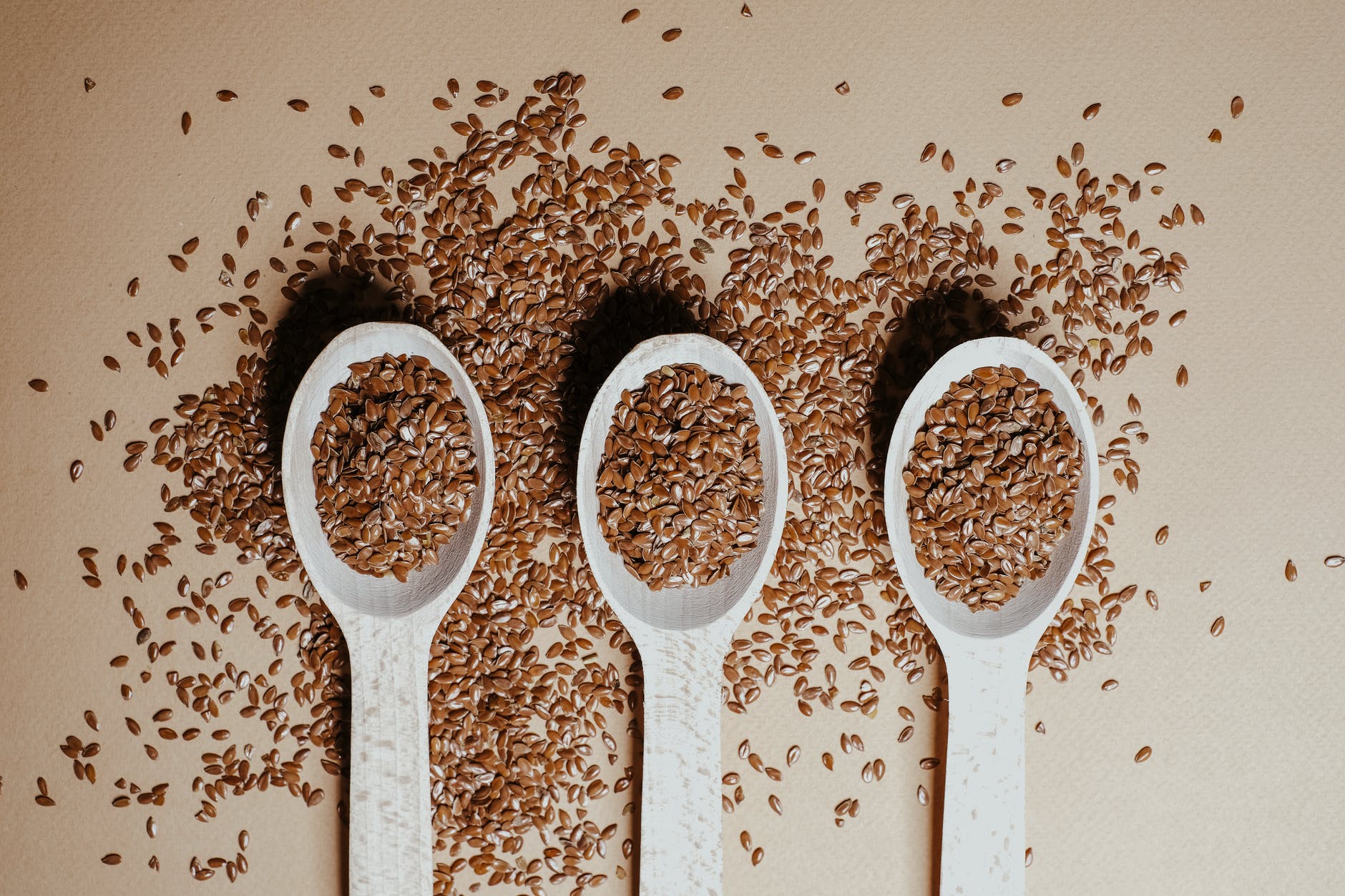10 Uses for Flax Seeds for Women with PCOS. Let’s face it. Keeping up with nutrition advice in the modern world is a challenge.
There are so many different ways of eating, and so many conflicting ideas. That’s why people with PCOS tend to struggle even more with finding healthy foods that help rather than hinder their condition.
You see, there are some fairly common recommendations out there for managing PCOS symptoms. A diet high in protein is one of them, as is keeping your carbohydrates moderate and avoiding sugar as much as possible.
Reducing stress and getting plenty of exercise are also staples of effective treatments for this condition. But what do all these things have to do with flax seeds?
You see, flax seeds are filled with nutrients that can help you manage your PCOS in a positive way. In this article we’ll be going over ten different ways that flax seeds can be used as a weapon against the negative effects of PCOS on your body and mind.
Flax Seeds and PCOS: A Brief Guide to What You Need to Know
First, let’s start with a basic overview of what PCOS is and what it does to your body. We’ll go into greater detail later on, but this will help set the stage for how flax seeds can help. PCOS stands for polycystic ovarian syndrome.
It’s a common hormonal condition that affects women. Many women will be diagnosed with PCOS at some point in their lives. Women with PCOS tend to have higher levels of male hormones, or androgens, in their bodies.
Androgens can cause problems in different parts of the body. In women with PCOS, androgens can cause problems with ovulation and fertility.
Weight Loss with Flax Seeds
If one of your concerns with PCOS is weight loss, then flax seeds may be the perfect solution for you. Research has found that eating flax seeds promotes weight loss in women with PCOS.
Flax seeds can be used in a number of ways to help support weight loss in women with PCOS. You can add them to salads and other dishes, use them in baking, or even blend them up into a smoothie.
They’re great when added to cereal, oatmeal, yogurt, and smoothies. With women with PCOS, flax seeds are especially effective at promoting healthy weight loss when combined with a healthy diet and regular exercise.
Mood Improvement With Flax Seeds for Women with PCOS
One of the most obvious ways that flax seeds can help women with PCOS is by improving their mood. Many women with PCOS experience mood disorders such as anxiety and depression.
Eating flax seeds can be a simple and effective way to improve your mood. Flax seeds contain a type of fiber called lignans. Lignans are phytoestrogens.
They act in the body like estradiol, the main type of estrogen made in the body by women. Eating flax seeds is an effective way to increase your body’s estradiol levels.
This can help relieve some symptoms of PCOS, as well as improve your mood. Adding flax seeds to yogurt, cereal, or smoothies can make it easier to increase your daily intake of these powerful seeds.
Managing Inflammation with Flra Seeds for PCOS
As many women with PCOS will know all too well, this condition can cause a great deal of inflammation. This can affect the reproductive system, as well as other parts of the body such as the digestive system.
Flax seeds are a great way to help manage inflammation in women with PCOS. Eating flax seeds is associated with lower levels of CRP, an important biomarker used to measure inflammation in the body.
Lignans are the active ingredient in flax seeds that helps to reduce inflammation. By eating flax seeds, you can raise your daily intake of lignans.
It’s important to keep in mind that eating flax seeds won’t completely eliminate all inflammation in women with PCOS. But it can help to reduce it significantly.
Helping Manage PCOS-Associated Hair Loss
Another common result of PCOS is hair loss. Hair loss is a symptom of many different medical conditions. It’s important to see a doctor if you experience hair loss.
You may be able to help prevent or slow down hair loss by eating more flax seeds. Research shows that eating flax seeds is associated with healthier hair growth.
Flax seeds are rich in healthy fats, which are important for healthy hair growth. They are also high in protein, which is another important nutrient for hair health.
Flax seeds are also associated with improved blood flow to the scalp. This can help with the proper growth and development of hair, including hair regrowth in people experiencing hair loss.
Helping Manage PCOS-Associated Acne and Skin Issues
Another common symptom of PCOS is acne and other skin issues. Like hair loss, acne can be a symptom of many different conditions.
Flax seeds contain a large amount of fiber, which is helpful for keeping the skin healthy. Eating flax seeds can help keep your skin healthy and free from acne.
Flax seeds also contain essential fatty acids, which are important for healthy skin. Eating flax seeds can help promote clear, healthy skin. As with many of the benefits of flax seeds, this effect is likely due to the lignans in flax seeds.

Managing Constipation and Bloating With Flax Seeds
Women with PCOS also tend to experience constipation and bloating. This can be another frustrating side effect of PCOS. Eating more flax seeds is an easy way to help prevent or treat constipation and bloating.
Flax seeds are rich in fiber, which is the substance that helps the body move things through the digestive system and prevent constipation.
Eating flax seeds can help prevent constipation and bloating. Flax seeds are also high in magnesium, which can help reduce bloating and uncomfortable digestive issues in most people.
Managing PCOS-Associated Depression and Anxiety with Flax Seed Nutrition
Many women with PCOS also experience depression and anxiety. Eating more flax seeds can help reduce these negative effects of PCOS.
Flax seeds contain healthy amounts of important nutrients that help to reduce anxiety and depression. Eating flax seeds can help to reduce anxiety and depression in women with PCOS.
Flax seeds are high in B vitamins, which are nutrients that help to promote mental health in people without PCOS as well.
They are also high in minerals such as zinc and magnesium, which can help to reduce feelings of anxiety and promote feelings of calm.
Helping Manage Irregular Cycles and Infertility With Flax Seeds
If you suffer from irregular cycles and infertility, you know just how frustrating it can be. Eating more flax seeds may help to reduce these symptoms.
Flax seeds are high in lignans, which are compounds that have been shown to help promote regular cycles. Eating flax seeds can help promote regular menstruation and help with infertility.
Their Phytoestrogens Are Good for PCOS Symptoms
We’ve covered many different ways that flax seeds can be helpful for women with PCOS. But their rich phytoestrogen content may be the most helpful thing about them in this case.
Why does that matter? Well, many women with PCOS have a very high level of androgens in their bodies. Androgens are male hormones that are present in women too, but at higher levels in some women with PCOS.
Androgens can cause issues related to fertility, metabolism, and even mental health in women with PCOS. Eating more flax seeds can help reduce the amount of androgens in your body.
10 Ways to Use Flax Seeds To Regain Your Hormonal Balance
Did you know that flax seeds have about 19% of oil, most of which is Omega-3 fatty acids? These tiny little seeds are also rich in vitamin E, manganese, and several other minerals.
In addition to these benefits, flaxseeds have a neutral taste, so they can be added to almost any dish. There are many ways to use them in your diet.
These little seeds might seem like a minor addition to the diet, but they can pack a punch. The phytonutrients in flaxseeds help the body fight disease and inflammation while also promoting hormone balance.
They are high in lignans and alpha-linolenic acid (ALA). Both of these compounds help the body produce estrogen and fight against excess estrogen levels which may cause negative side effects such as PMS or menopause symptoms.
Importance of Flax Seeds and Flaxseed Oil
Flaxseeds and flaxseed oil have been consumed throughout history. The Chinese used flax seeds as food as early as 3000 B.C. Flaxseed oil was used as a lamp oil because it is very resistant to oxidation.
It was also used as a fertilizer because it contains lots of nitrogen. The medical uses of flaxseed were discovered in the 20th century.
Flaxseed oil contains about 50% linoleic acid, which is an essential fatty acid. The body does not produce it, so it has to be consumed through food or supplements.
Flaxseed oil is about 25% omega-3 fatty acids, which include alpha-linolenic acid (ALA), eicosapentaenoic acid (EPA), and docosahexaenoic acid (DHA).
EPA and DHA are converted to hormones that regulate the menstrual cycle, reduce cramps and PMS symptoms, reduce the risk of endometrial and ovarian cancers, and help with menopausal symptoms.
Omega-3 Fatty Acids in Flax Seeds
Omega-3 fatty acids are polyunsaturated fats that have been shown to have many health benefits, including reducing the risk of heart disease, stroke, and even dementia.
Flaxseeds contain ALA, the essential omega-3 fatty acid. ALA is used to make the hormones that regulate the menstrual cycle, reduce cramps and PMS symptoms, and help with menopausal symptoms.
It is also thought that omega-3 fatty acids may help in the prevention of breast cancer and in the treatment of prostate cancer.
However, ALA is not as easily converted to DHA as some other omega-3 fatty acids (such as the kind found in fish oils).
This means that flaxseed oil is not as effective at preventing and treating diseases as fish oil. However, flaxseed is a hugely affordable option for people who don’t want to consume fish.

Lignans in Flax Seeds
Lignans are a type of phytonutrient in flaxseed that help regulate estrogen levels. They have been shown to reduce the risk of breast cancer and help women with menopausal symptoms.
Lignans are also a source of fiber. The amount of lignans in flax seeds varies. It depends on the soil, growing conditions, and environmental factors.
Research suggests that consuming a high amount of lignans (7-10 grams daily) reduces the risk of breast cancer. For menopausal symptoms, a lower amount of lignans (1-3 grams daily) seems to work best.
Alpha-linolenic Acid (ALA) in Flax Seeds
Alpha-linolenic acid is an essential fatty acid that is converted to eicosanoids, which regulate the menstrual cycle, reduce cramps and PMS symptoms, and help with menopausal symptoms.
It is also thought that ALA may help in the prevention of breast cancer and in the treatment of prostate cancer. ALA is also a source of protein.
The amount of ALA in flax seeds varies. It depends on the soil, growing conditions, and environmental factors.
Research suggests that consuming a high amount of ALA reduces the risk of breast cancer. For menopausal symptoms, a lower amount of ALA seems to work best.
Flaxseed Meal/Flaxseed Powder
Lignans are soluble fiber and are water soluble, so they are best extracted in water. Seeds are crushed to get the lignans from them, and then water is added to the seeds.
This can be stored for later use. The liquid is strained and then dried to get the lignans as a powder. Flaxseed powder is about 2-3 times stronger in lignans than whole flaxseeds.
You can add flaxseed powder to smoothies, oatmeal, yogurt, or baked goods to get the benefits of flaxseeds in a more concentrated form.
Food Sources of Flaxseeds: A few ways to include them in your diet
– The easiest way to add flaxseed to your diet is to sprinkle some ground flaxseed on your oatmeal or yogurt.
You can also use flaxseed as an egg substitute in baked goods.
Simply grind the seeds in a blender or coffee grinder, and then add them to your recipe as you would add eggs. – Drink flaxseed tea. Boil flaxseeds with water and then strain the mixture to get a tea.
– Add flaxseed oil to salad dressings, sauces, or smoothies. – Replace the oil in baked goods with flaxseed oil. – Replace the butter in baked goods with ground flaxseed.
– Replace the eggs in baked goods with ground flaxseed powder. – Add a handful of flaxseed to smoothies. – Add flaxseed to a salad. – Add flaxseed to stir-fries or curries.
– Add flaxseed to yogurt or oatmeal. – Add flaxseed to granola. – Add flaxseed to roasted vegetables. – Add flaxseed to roasted potatoes.
– Add flaxseed to roasted fish or chicken. – Add flaxseed to pancakes or waffles.

Flaxseed oil
You can add flaxseed oil to salad dressings, smoothies, or even roasted vegetables. You can also mix it into yogurt or oatmeal.
Many people who follow a low-carb diet use flaxseed oil as a substitute for other oils.
Flaxseed oil is more concentrated than flaxseed, so you can use less of it. You can add flaxseed oil to salad dressings, smoothies, or even roasted vegetables.
You can also mix it into yogurt or oatmeal. Flaxseed oil is unstable when exposed to heat, so it shouldn’t be used for cooking. It should be consumed cold or at room temperature.
Flaxseeds are a superfood that can boost your health in multiple ways. They are rich in fiber, protein, and many minerals and vitamins.
They are also very low in calories, making them a great addition to any diet. The most important thing about flaxseeds is that they contain lignans and alpha-linolenic acid (ALA).
These phytonutrients are converted to hormones that regulate the menstrual cycle and help with menopausal symptoms.
Conclusion
The many uses of flax seeds make them a truly versatile superfood. They can be used to help manage many of the symptoms of PCOS, as well as related issues like hair loss and acne.
If you struggle with any of these issues, try adding flax seeds to your diet. You may find that they help you reduce symptoms and improve your quality of life.
If you don’t have PCOS, you can still benefit from eating flax seeds. They are packed with nutrients that are good for everyone.














